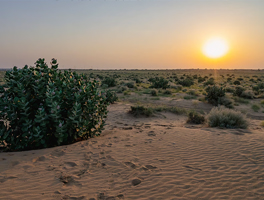 |
Dear readers,
Welcome to the Climate Weekly newsletter by the Centre for Science and Environment’s Climate Change programme and Down to Earth.
Amid the growing demand for critical minerals needed for clean technologies, Global South countries—which, according to some sources, own half of the world’s critical minerals—have the opportunity to spur the global energy transition and transform their economies. In their latest article, CSE’s Sehr Raheja and Rudrath Avinashi write about the temporary ban placed by the Democratic Republic of Congo (DRC) on the export of cobalt—with the aim of curbing oversupply in the global market, and thereby increasing prices. Cobalt is a key component for batteries in electric vehicles (EVs) and wind turbine generators, and the DRC contributes over 70 per cent of global supply.
Countries have used similar mineral export bans in the past to capture higher economic value from their resources, such as Indonesia banning the export of nickel ore since 2020 in order to incentivise investment in the country’s downstream nickel industries, i.e., refining and battery manufacturing. Raheja and Avinashi point out that the demand for critical minerals is expected to increase in the coming years, and with China, US and EU aiming to gain greater access to these resources, the Global South needs to determine how it can command more control over the extraction, processing and manufacturing of critical minerals.
In energy-related news, to cope with the rising temperatures, Indians are increasingly turning to air coolers and air conditioners (AC). Over 40 per cent of urban households and 15 per cent of rural households own an AC or air cooler, and the demand for ACs is surging, with 9.4 million units sold in 2024—a 35 per cent year-on-year increase. According to the CEA, AC use accounts for about 6.6 per cent of India’s total electricity demand. However, coal-fired thermal power remains India’s dominant energy source, providing over 75 per cent of the electricity during summer months. At current levels, India’s cooling-related emissions total 202,0000 tonnes of CO₂, signalling the need to future-proof cooling needs.
Finally, a German court has ordered the sportswear manufacturer Adidas to desist from advertising that it will become ‘climate neutral by 2050’. According to the court order, Adidas was found guilty of misleading advertising as the company failed to clearly demonstrate how it intends to reach this target. A 2020 study found that 53 per cent of ‘green claims’ provide vague, misleading or unfounded information.
|
|
 |
| |
 |
|
| |
 |
 |
| |
By - Upamanyu Das
Climate Change, CSE
|
| |
|
 |
|
|
| |
 |
|
| |
| EXTREME WEATHER TRACKER |
| |
Why some storms brew up to extreme dimensions in the middle of America — and why it’s happening more often, 09 April 2025
|
 |
 |
|
|
| |
 |
|
| |
 |
 |
Thar desert is greening, thanks to higher rainfall, excessive groundwater pumping, 08 April 2025
|
|
|
| |
 |
|
| |
|
COMMENTARIES |
 |
|
Rework the economics, 09 April 2025
|
 |
|
India cannot afford an economy that is driven only by GDP and not by GNP, or gross nature product, that invests in natural resources for livelihoods, locally
|
|
|
| |
|
|
| |
|
|
| |
 |
|
| |
|
|
| |
 |
|
| |
CLIMATE NEWS | SCIENCE| IMPACTS| POLITICS |
|
| |
 |
|
| |
|
|
| |
 |
|
| |
|
|
| |
 |
|
| |
|
|
| |
 |
|
| |
|
|
| |
 |
|
| |
|
|
| |
 |
|
| |
|
|
| |
 |
|
| |
|
|
| |
 |
|
| |
|
|
| |
 |
|
| |
|
|
| |
 |
|
| |
|
|
| |
 |
|
| |
| Photo Gallery |
|
Gobar Times |
| |
|
|
|
|
|
|
|
|
| |
|
|
| |
Online Training Course |
|
| |
|
|
| |

|
|
| |
|
|